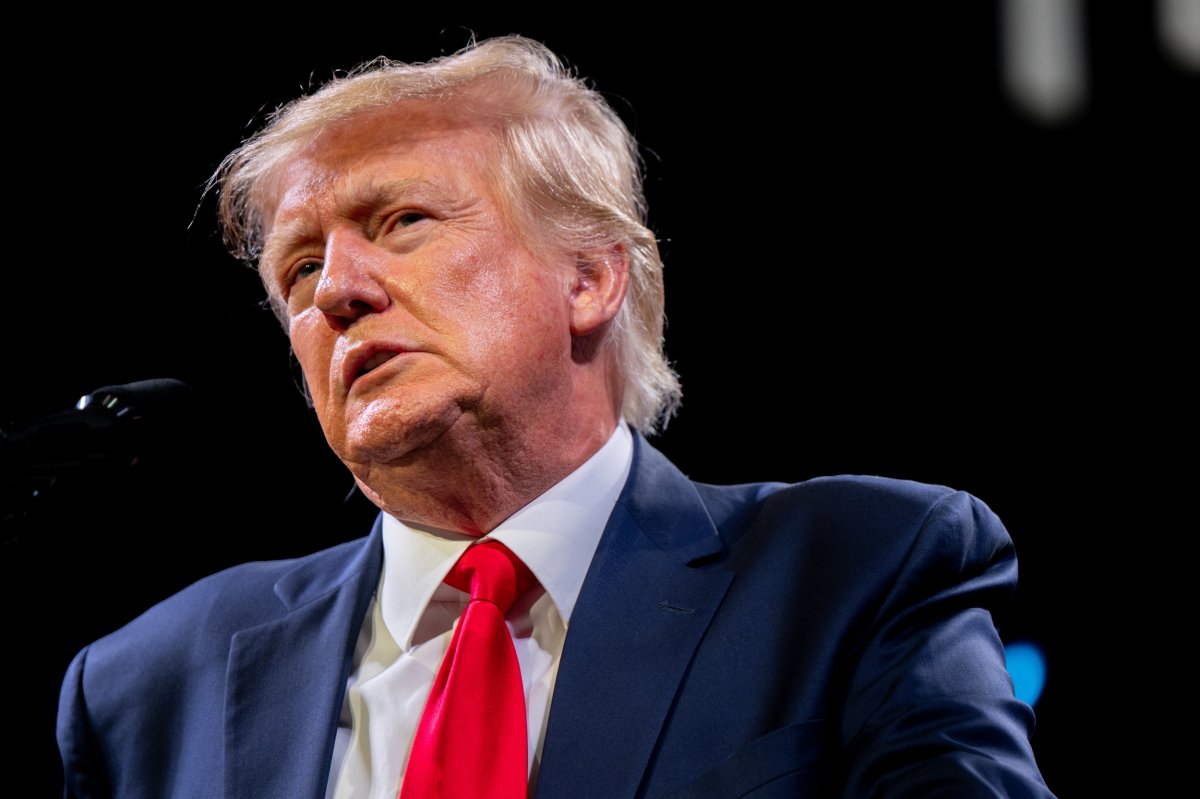After formally announcing his candidacy for the 2024 Republican nomination for president, the Fourteenth Amendment is once again being bandied about as a means by which to block Donald Trump from seeking said office. Politically and legally, this is an unserious and unsound tactic which should immediately be cast aside from further consideration.
Legally, the core problem of allowing Congress to use the 14th amendment to bar Trump from holding any future office is that such a move would inherently be at tension with the provision in the Constitution which disallows the legislature from issuing any "bill of attainder." In plan English, this means that guilt cannot be legislatively declared, ensuring that only the judicial branch has this power.
Further consider that the Supreme Court, in U.S. v. Lovett (1946), held that an unconstitutional bill of attainder was any legislative act that specifically identified the people to be punished, imposed punishment, and did so without benefit of judicial trial. A congressional resolution declaring Donald Trump guilty of insurrection while simultaneously seeking to punish him by stripping him of the ability to hold office in the future seems to be a prima facie violation of this clause.
Granted, section five of the Fourteenth Amendment explicitly gives Congress the power to enforce all of its provisions. However, it further stipulates that they may only do so "by appropriate legislation." A legislative maneuver that explicitly relies on the violation of another constitutional provision and so plainly violates Supreme Court precedent can hardly seen seen as "appropriate."
Even if we were to assume the legislative path to Trump's Fourteenth Amendment disqualification from office could overcome the legal hurdles it faces, it is nevertheless a politically unsound path. With only a bare Democratic majority in both Houses, and now being in the closing weeks of a lame duck session, successfully passing a resolution barring Trump from future office is almost as practically problematic as it is legally ludicrous. The continued existence of the filibuster in the Senate alone ought to put an end to any and all considerations that this is a politically viable plan worthy of serious consideration.
Were Democrats somehow able to miraculously pass a resolution declaring Trump ineligible to hold future office given his role in the Jan. 6 insurrection, it would still be a politically disastrous plan given the precedent it would set. Democrats succeeding in such action would virtually guarantee that Republicans, whenever they control both houses of Congress by even the slimmest of majorities, would wield this newfound power of disbarment from political office with reckless abandon. Truly, it takes little imagination to see a future where legislators of both parties vet every word an oppositional presidential candidate utters in order to try and declare it as incitement.
Despicable rhetoric such as what Donald Trump has used in the lead up to Jan. 6 may well be enough to conclude he incited an insurrection at the Capitol that day. I am not only sympathetic to this finding but feel it is a rather obvious determination that any reasonable and unbiased person would conclude.

However, by allowing a simple majority of the legislature to determine this question unilaterally, we would effectively allow a hyper-polarized partisan body easy say over who serves as an elected leader and who cannot. The two-thirds vote in the Senate that is required to remove a president via impeachment, as well as the two-thirds vote requirement to expel a member of their own House, establishes that the plain intent of the Constitution is that the removal of any duly elected official by the legislature is meant to be a Herculean task.
A legally sound path to disqualifying Trump from future office via the Fourteenth Amendment would be if he were to be convicted in a court of law of charges directly touching on either insurrection or rebellion. With the recent appointment of a special counsel meant to investigate Trump for his role in the insurrection, this is not outside the realm of possibility.
Politically, this way forward is more palpable than any legislatively led alternative, but it does present real risks worth considering. Namely, a sitting president's prosecuting his once and future rival would forever poison the well of trust that a sizable number of Republicans have in the political system, potentially leading to some very dark outcomes.
The only way to prevent another Trump presidency that is both legal and politically sound is via his defeat at the ballot box. Which, with the midterms being a resounding defeat for election denialism, Democrats ought to feel good enough about their chances on that front such that all talk of the Fourteenth Amendment as it relates to Trump can be forever put to rest.
Nicholas Creel is an assistant professor of business law at Georgia College and State University.
The views expressed in this article are the writer's own.
Uncommon Knowledge
Newsweek is committed to challenging conventional wisdom and finding connections in the search for common ground.
Newsweek is committed to challenging conventional wisdom and finding connections in the search for common ground.
About the writer
To read how Newsweek uses AI as a newsroom tool, Click here.








